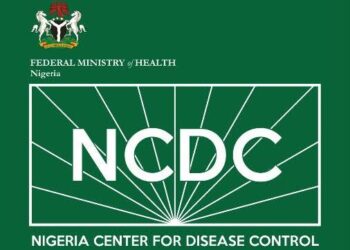The Nigeria Centre for Disease Control (NCDC) on Friday issued a public health advisory amid the recent increase in COVID-19 cases in the country and globally.
“This is based on the prevailing risk from the virus and the need for religious organisations, community leaders, and Nigerians, in general, to take necessary precautions ahead of the upcoming Eid-el-Kabir celebrations,” it said, adding that the number of weekly COVID-19 cases has increased globally for the third consecutive week – according to the World Health Organisation (WHO).
“Similarly, our national surveillance system has detected a gradual increase in the daily COVID-19 cases recorded in the country.
Since Nigeria’s first case was detected on 27th February 2020, authorities have confirmed 256,695 cases with 3,144 deaths across the 36 states and the Federal Capital Territory (FCT).
Genomic surveillance, according to the NCDC, confirms omicron and its various offspring (sub lineages) remain the dominant circulating variant of concern associated with the spread of the disease in the country.
It explained that the recent increase in cases may be in part or whole due to increased testing over the last few weeks, increased circulation of omicron sub-lineages (BA.4 and BA.5 as seen elsewhere), an increase in seasonal illness with cold and cough symptoms, as well as poor adherence to preventive measures such as the use of masks.
Authorities said they have continued to maintain active surveillance and support states to ensure that access to testing was provided for prompt management of confirmed cases, and coordinate genomic surveillance to detect emerging variants.
“Our focus is to ensure response continuity for COVID-19 and improve our health system while giving needed attention to other priorities within our mandate including the ongoing monkeypox response,” the agency said.
“In addition to the COVID-19 situation in Nigeria and globally, the upcoming Eid-El-Kabir celebrations against a backdrop of suboptimal COVID-19 vaccination uptake and increasing COVID-19 case numbers calls for increased individual and collective responsibility.
“The virus that causes COVID-19 is more likely to spread in mass gatherings and when people do not adhere to preventive measures such as physical distancing, mask use, and hand hygiene.








